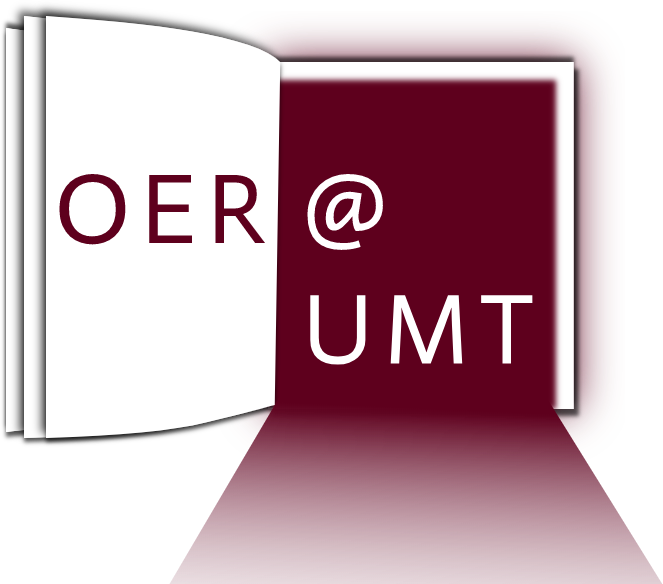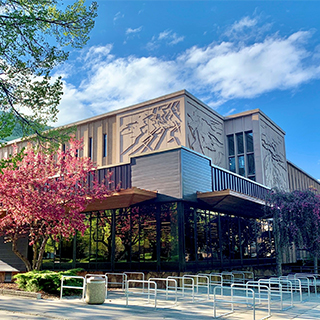OER@UMT
What are Open Educational Resources (OER)?
OER are public domain or openly licensed educational materials that instructors and students may use, customize, and share for free. Instructors may use these learning resources in their classrooms as they would use traditional textbooks and other course materials, or they may modify or adapt them to fit the specific pedagogical needs of their course. OER improve affordability, narrow performance gaps, and help level the academic playing field for all students.
Transform your Teaching with Open Educational Resources includes a series of nine self-paced, online learning modules that provide in-depth coverage of OER, Creative Commons licensing, finding and evaluating OER, and open pedagogy.
Take the entire course, or dip into the individual modules that are relevant to your needs. Each module includes a downloadable "key takeaways" document for easy access to key concepts and useful links.
You can also learn more about OER on the Library's OER Guide. The guide includes a search tool and a list of OER repositories and resources to help you find OER. If you would like help finding OER for your course(s), contact Wendy Walker.

Why do OER matter?
- Textbook costs have risen 88% since 2006.
- One study found 65% of students opt out of purchasing textbooks.
- 48% of students said the cost of textbooks impacted how many and which classes they took each semester.
- 82% of students said free online access to textbooks would help them do "significantly better" in a course.1
1Sources: U.S. Bureau of Labor Statistics and the US Public Interest Research Group
In addition to addressing high textbook costs and providing day-one access to course materials for all students, studies have shown that OER improve students' academic results as well as course-level retention. OER also support innovative teaching practices. Learn more about the many benefits of OER for students and faculty.
The 2019-2020 OER@UMT Grant Pilot Program
Thanks to funding from the Mansfield Library, the Provost's Office, and the School of Extended and Lifelong Learning, we piloted a grant initiative called OER@UMT in Spring 2019. It was open to any course instructor at the University of Montana and Missoula College. See the list of grant recipients.
Funding from OER@UMT took two forms:
#1 OER Review Grant
Receive an incentive to review an existing open textbook. This is a great first step for faculty with little experience researching OER. Learn more about the OER landscape in your discipline! Faculty are encouraged to complete this grant before applying for an Adopt, Adapt, Create Grant.
Amount: $200
#2 Adopt, Adapt, Create Grant
Replace your current course textbook with OER that you either find, adapt, or create from scratch.
Amount: $500 to adopt or $1,000 to adapt an existing open educational resource or $2,500 to create an open educational resource.
